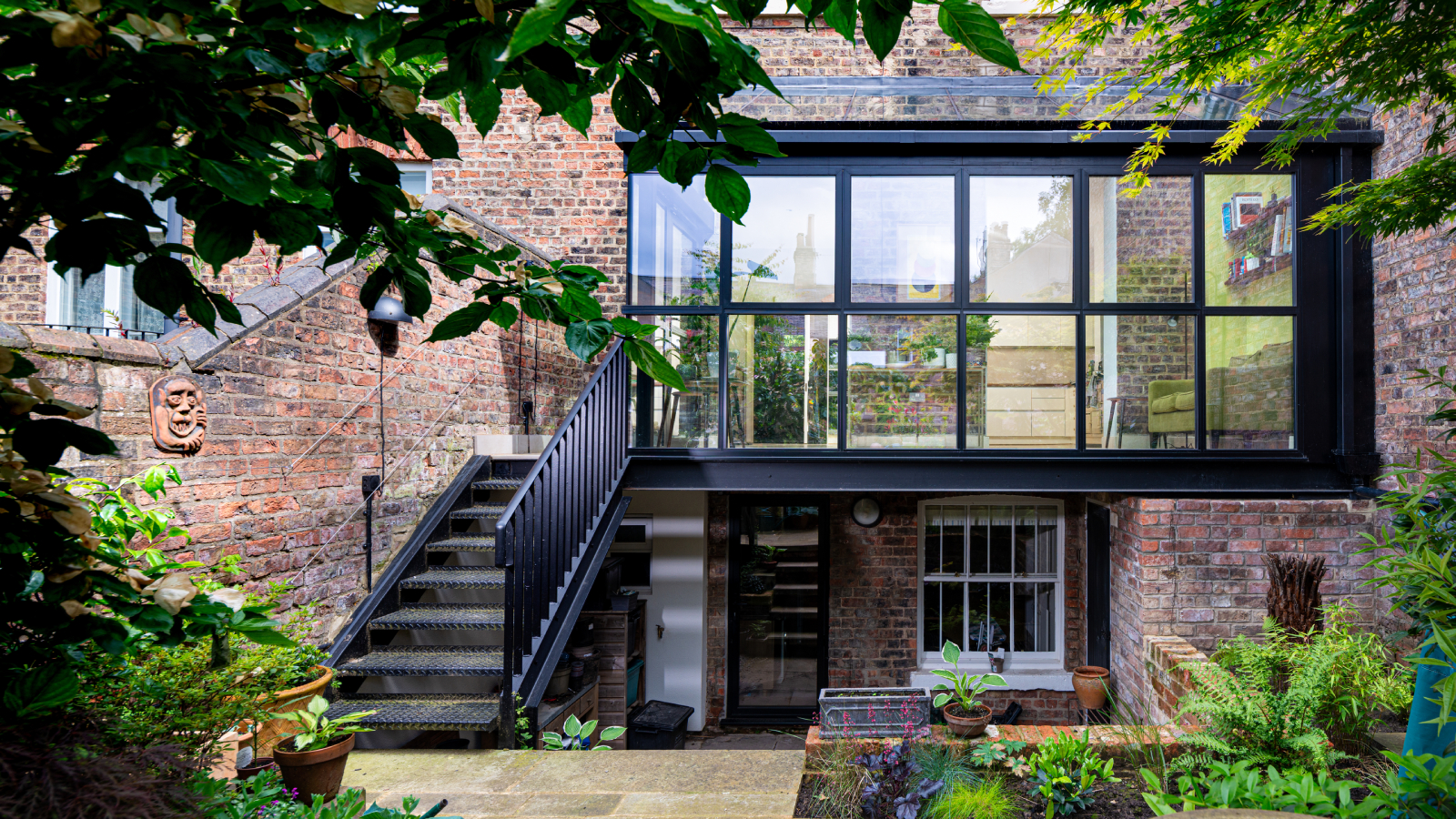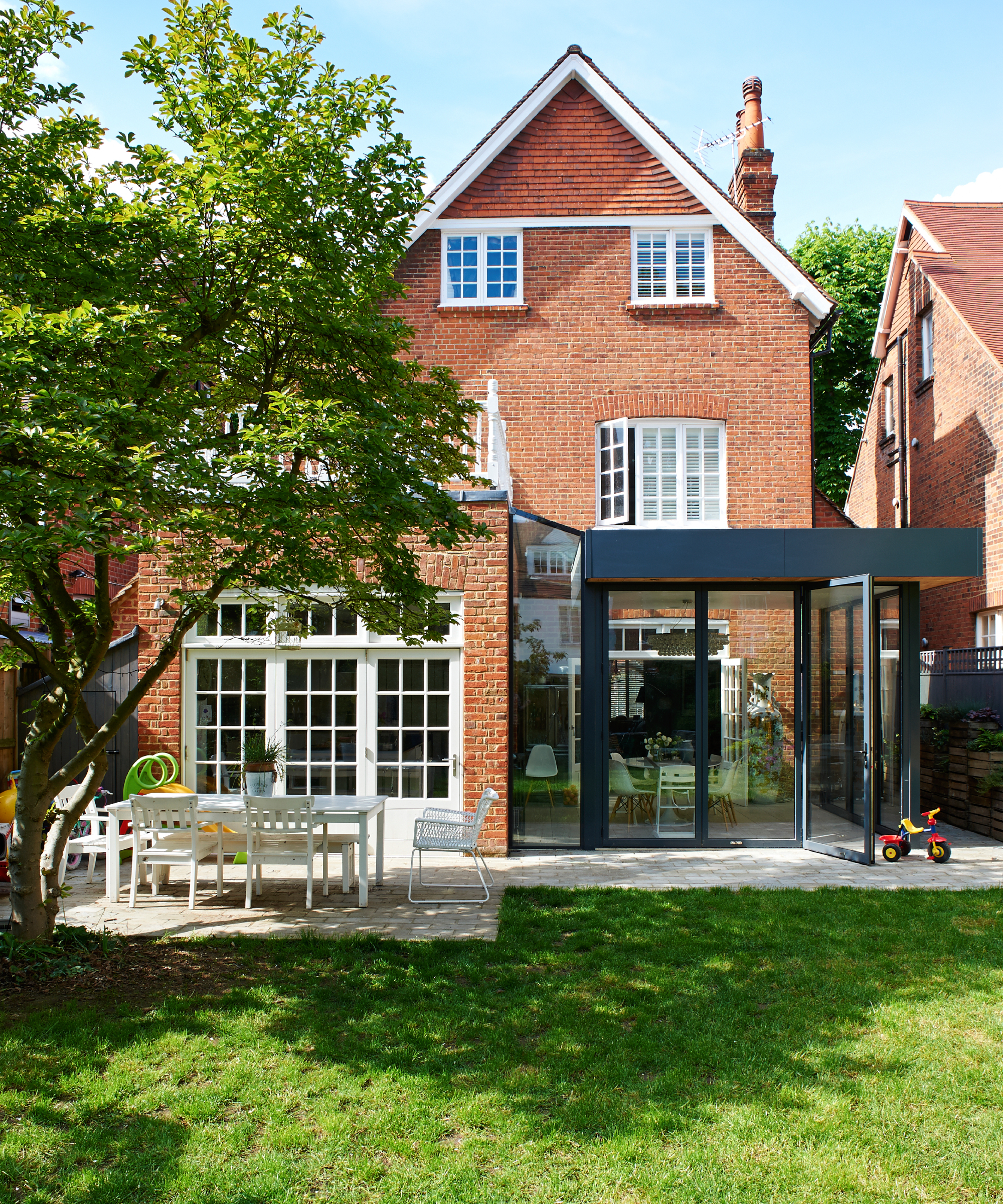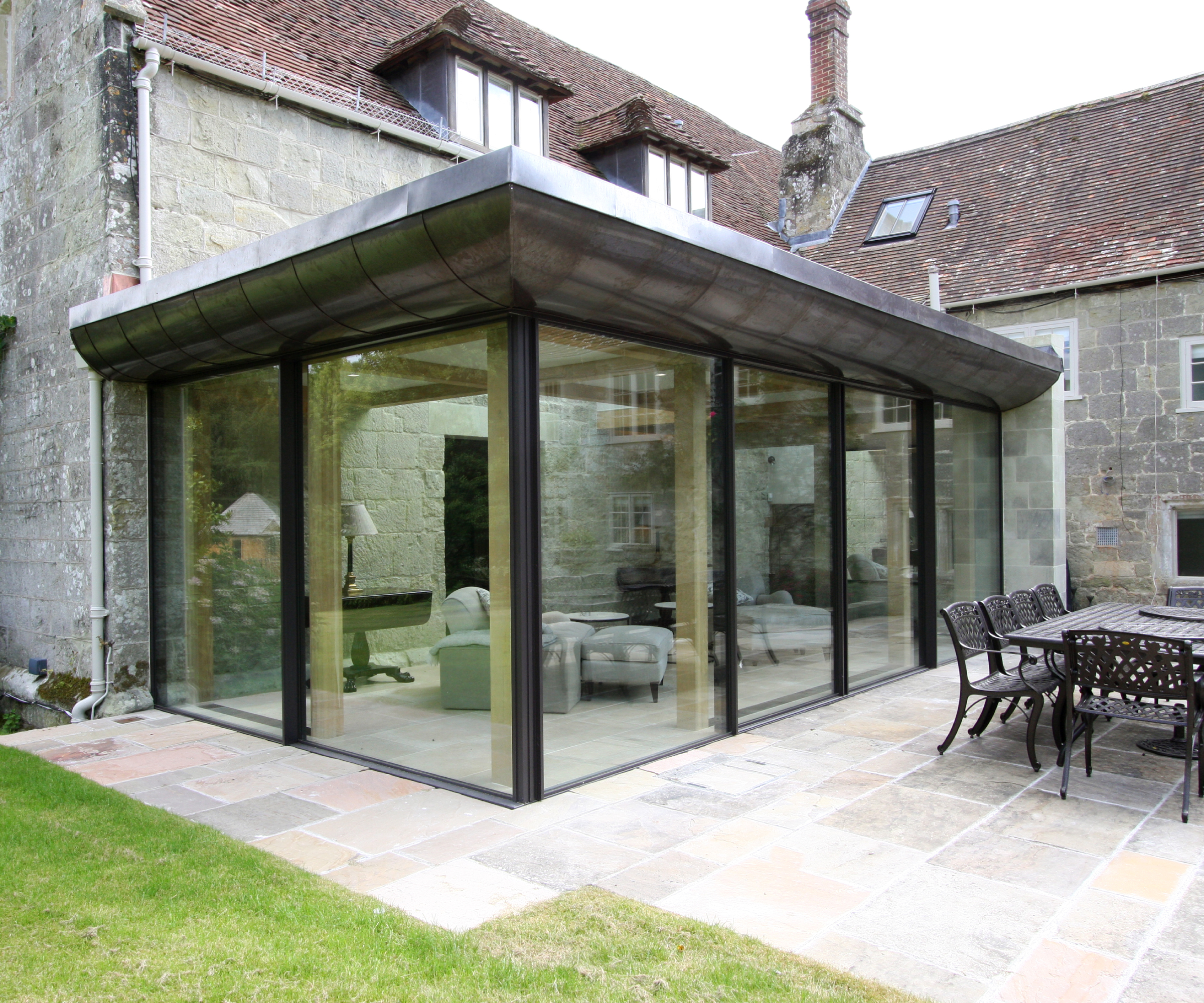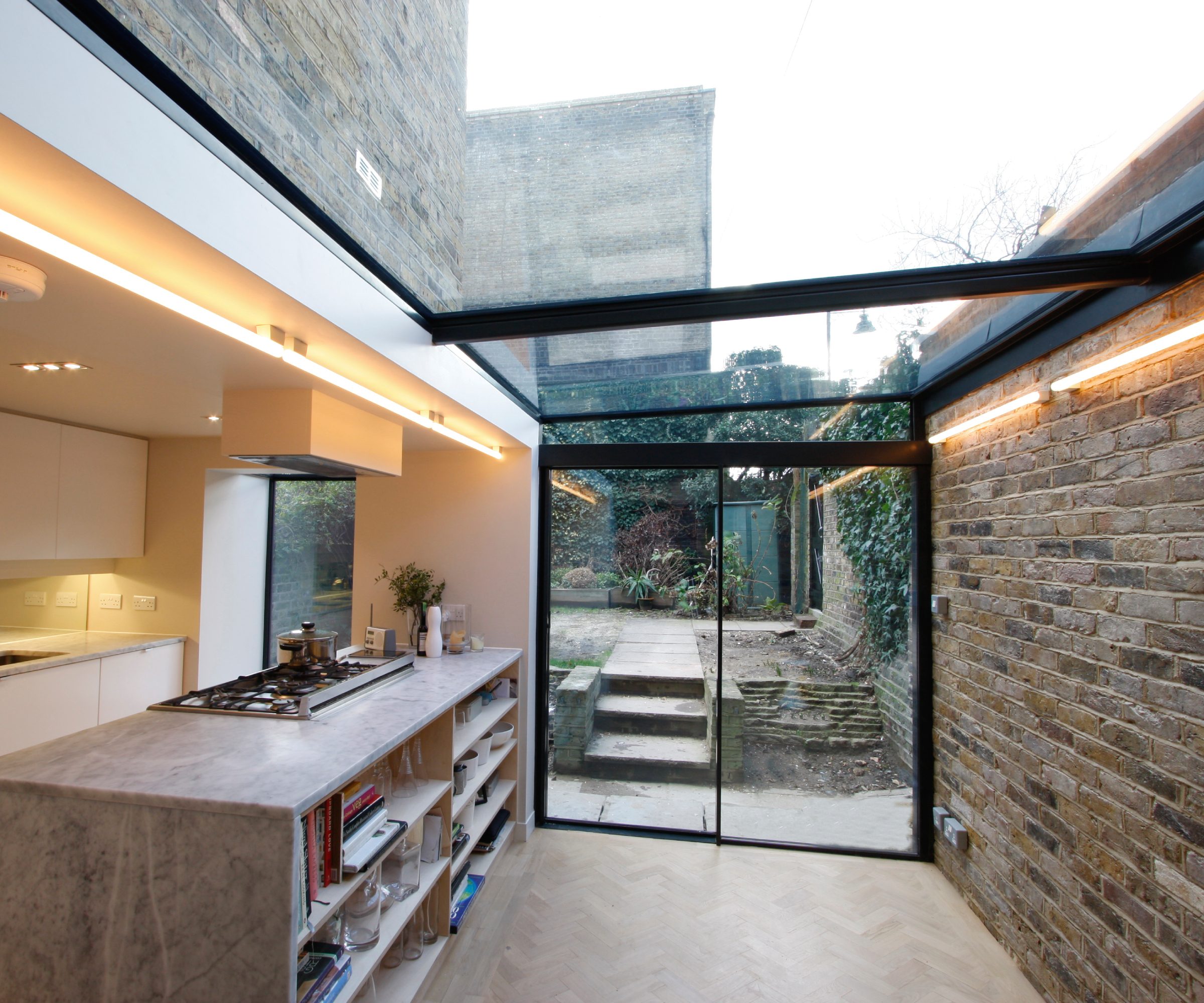Why safety, strength and solar gain will all determine what glass you need for a glass extension
If you're wondering what glass do I need for a glass extension, we explain what types are best to make sure they're fit for purpose and will meet your needs

What glass do I need for a glass extension is a question that should be top of your list when designing an extension. Safety, strength and solar gain are all important factors that need consideration when opting for a structure made heavily, or entirely from glass.
Picking the wrong glass is certainly not a mistake you want to make, and with options ranging from double to triple glazed, acoustic to solar glass and even heat producing glass, the options can seem overwhelming if you aren't sure what you need to consider.
So, with plenty of experts in the industry, we asked two of the most well known companies, 'what glass do I need for a glass extension', and here's what they said.
What glass do I need for a glass extension?
If your glass extension idea is one that could be more specifically classed as a glass box extension, then you'll essentially be creating the structure out of glass which naturally leads you to understand just how important it is to pick the right type.
Without more traditional construction materials such as brick or block to carry the structural load, there's no doubt you will require the services of a structural engineer for your extension to get your calculations right.
But what glass do you specifically need for a glass extension?
"For applications like glazed walls, roofs and windows or doors then a safety glass is a necessity," says Edward Stobart, technical sales manager at IDSystems.
Bring your dream home to life with expert advice, how to guides and design inspiration. Sign up for our newsletter and get two free tickets to a Homebuilding & Renovating Show near you.
"Toughened safety glass is treated in the manufacturing process to be significantly stronger than ordinary glass and if broken breaks into blunt pieces. Alternatively laminated glass is two panes of glass with a polymer interlayer – much like a car windscreen – which, even if broken, the pane shatters but holds together providing an extra level of security and safety," he explains.
Considering a glass roof extension idea? "For glass roofs you may also wish to consider heat soaked glass which is significantly reduces the risk of nickel sulphide inclusion – the most common cause of spontaneous glass breakage," says Edward.
Rebecca Clayton, a director at IQ Glass explains how the company typically recommends their Invisio structural glass system for walls, ceilings, doors, and windows in a glass extension.
"Invisio is a fully thermally broken, frameless structural glazing solution providing excellent thermal insulation and minimal aesthetics," she says. "We can also integrate slim sliding patio doors, particularly where slim-framed, large-scale moving glass panels are needed."

A long serving member of the IDSystems team, for the past 20 years Edward has advised and supported self-builders and renovators to identify the most suitable glazing options for their project. He has recently finished a complete renovation and remodel of his own home, transforming a tired 1960s house into a stylish modern family home.

Rebecca Clayton is communications director at IQ Glass. She has many years of experience with the company, who specialise in architectural glazing and installs some of the most pioneering architectural glass technology available today.
Is there a difference in the glass used for a frameless vs framed design?
Although you may assume the glass used for a frameless design is different to that used in a glass extension that has framed sections, this isn't the case explain the experts, stating how it's the structure, rather than the glass that changes.
"The primary difference is the fixing and supporting structure," says Rebecca Clayton. "Frameless designs typically use a product such as Invisio which, allows floor-to-ceiling elevations without visible frames or supports.
"Framed designs on the other hand, such as Mondrian glass extensions, use thermally broken steel profiles to support the glazing, thus creating their own distinct visual style."
But, in either case the type of glass remains the same in order to ensure it's safe and compliant with building regulations.

What glass should I choose to avoid issues with overheating?
One of the main issues with opting for a glass extension is that it naturally invites in the sunshine. And while this can be a positive, it can also lead to overheating if you don't have the right glass specified for your project.
And, with rising temperatures, designing homes to combat the issue is becoming increasingly important. So what do you need to consider when it comes to choosing your glass?
"When it comes to preventing overheating, opting for glass with a solar control coating is definitely something to consider," confirms Edward Stobart, "and almost a necessity for large amounts of glazing on south facing elevations.
"Solar control glass is coated (usually on the inner face of the outer pane in a double-glazed unit) with a very thin, invisible metal oxide layer. This coating reflects infrared radiation and keeps out solar heat before it enters the room, whilst maintaining visible light transmission to keep rooms bright and naturally lit," he explains.
Worried you might lose too much light? There are different types says Rebecca Clayton, stating that the company's most popular type, the 70/35 coating, maintains 70% natural light transmission while still significantly reducing overheating.

Do you need triple glazing or is double glazing sufficient?
Assuming triple glazed glass will be required for a glass extension is an easy enough assumption to make, but it isn't always the case say the experts. And in fact, might not even be suitable in some cases.
"Triple glazing is typically more thermally efficient than double glazing, however triple glazing costs are always higher," says Edward Stobart. "For the vast majority of homes, modern high performance double glazing will be substantially better than existing windows and doors, so triple glazing is not required.
"But, for those planning ultra-efficient eco-homes or aiming for Passivhaus standards of thermal efficiency, then triple glazing is the best solution," confirms Edward.
"Triple glazing achieves U-values as low as 0.8 W/m²K," adds Rebecca Clayton. "It’s recommended where maximum insulation is desired, though double glazing is generally sufficient for most UK climates, offering U-values from around 1.1 W/m²K."
But, if you're planning an extensively sized glass extension, you may find that triple glazing isn't actually suitable, warns Edward.
"One thing to consider with triple glazing is that because it is 50% heavier than the equivalent double glazed unit there can be limitations on the sizes that can be achieved – something especially important for glass roofs."

Which glass is best to avoid lots of cleaning?
Of course, the only downside with having lots of glazed walls, windows and even roofs is the potential for dirt, watermarks and fingerprints to turn into a never-ending cleaning challenge.
The good news is there are options available when considering what glass do I need for a glass extension.
"We usually recommend 'Low Maintenance Glass'," says Rebecca Clayton, "which includes an invisible protective coating applied to the external face. It significantly reduces cleaning frequency, especially in challenging environments such as marine areas or spaces with restricted access. It also protects glass surfaces from chemical etching and damage."
"For glass roofs it is particularly important to look for self-cleaning glass," adds Edward Stobart, "which is glazing that has a coating on the outer surface of the glass to help keep it cleaner for longer by using natural sunlight and rainwater to break down and wash away dirt."
FAQs
What is the strongest type of glass?
"For applications such as balustrades that often feature on loft balcony ideas, toughened laminated glass with thicknesses of between 17.5mm – 21.5mm is typically used," explains Edward Stobart. "This ensures the glass complies with building regulations covering safety at height."
"Toughened laminated glass, combines the high strength of toughened (tempered) glass with the security benefits of laminated safety glass," adds Rebecca Clayton. It's why if you are considering any internal window ideas, such as a walk-on glass floor, this is what should be specified by your supplier.
Can glass help heat my home?
As well as the benefits of using solar gain to help heat your home, there are also certain types of glass that radiate additional heat.
"IQ Glass has a product called Heated Glass," confirms Rebecca Clayton, "which acts as a transparent electrical heating source, suitable for heating spaces such as glass extensions.
"It can help eliminate condensation, and preventing snow build-up externally," she adds. "The system is electrically conductive and controlled via thermostat or home automation, producing comfortable radiant heat throughout the extension."
Wondering how much to budget for a glass extension? Find out what can impact your budget in our guide to glass extension costs and work out what you could expect to pay for your project using our handy online extension costs calculator.

Sarah is Homebuilding & Renovating’s Assistant Editor and joined the team in 2024. An established homes and interiors writer, Sarah has renovated and extended a number of properties, including a listing building and renovation project that featured on Grand Designs. Although she said she would never buy a listed property again, she has recently purchased a Grade II listed apartment. As it had already been professionally renovated, she has instead set her sights on tackling some changes to improve the building’s energy efficiency, as well as adding some personal touches to the interior.
